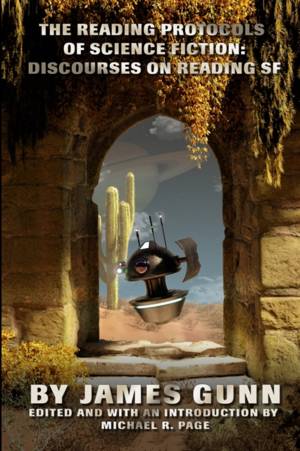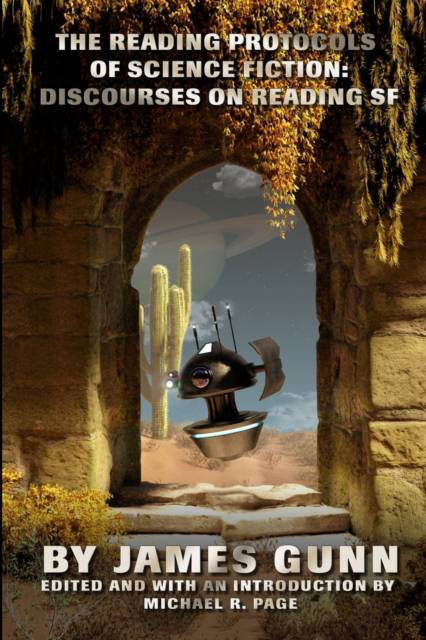
- Afhalen na 1 uur in een winkel met voorraad
- Gratis thuislevering in België vanaf € 30
- Ruim aanbod met 7 miljoen producten
- Afhalen na 1 uur in een winkel met voorraad
- Gratis thuislevering in België vanaf € 30
- Ruim aanbod met 7 miljoen producten
Omschrijving
"The invitation came online, probably an e-mail. I was aware of the existence of SFF.net, a website that specialized in discussions of science fiction issues, often by authors who were too impatient to get their opinions published in the SFWA Bulletin, which got published every two months and was the battleground for some classic debates and sometimes name-calling... The invitation was to join a discussion--in midstream--about the protocols for reading science fiction. One of the exchanges online included a reference to the fact that I had written about the protocols in a recent article... I didn't read the website regularly, mostly because I didn't have time; these were busy days for me, both teaching and publishing, and my days as president of SFWA and then of SFRA were long over, and the debates were still raging about mostly the same issues. But the debates about the protocols of reading science fiction were still fresh and the discussion about them, if they existed, was still fresh. And the discussion was brisk and sharp, particularly from Damon Knight, with whom I had an interesting relationship since I had read his fiction and his critical opinions... We had met in a bar at the World Science Fiction Convention..."
And so begins James Gunn's definitive and fascinating study of the reading protocols of science fiction -- the way readers read science fiction differently than other kinds of fiction. (Or, do they?) The journey may seem academically dry, but is anything but, as it involves all sorts of beloved personalities and brawling debates about reading, writing, the very definition of science fiction itself, and what sets it apart from other fiction, and, ultimately, what makes us what we are as humans.
The lively debate involves Damon Knight and many other professional science fiction writers and critcs. The book includes Samuel R. Delany's key essay on the subject, and several by James Gunn, to thoroughly explore the subject.
This is James Gunn's last book, finished just before his death, and a most fitting capstone to his incredible career, all carefully put together with his friend and associate, Michael R. Page.
It's a must-read for any fan of the science fiction genre and those who write it.
Specificaties
Betrokkenen
- Auteur(s):
- Uitgeverij:
Inhoud
- Aantal bladzijden:
- 268
- Taal:
- Engels
Eigenschappen
- Productcode (EAN):
- 9798528498546
- Verschijningsdatum:
- 29/06/2021
- Uitvoering:
- Paperback
- Formaat:
- Trade paperback (VS)
- Afmetingen:
- 152 mm x 229 mm
- Gewicht:
- 362 g

Alleen bij Standaard Boekhandel
Beoordelingen
We publiceren alleen reviews die voldoen aan de voorwaarden voor reviews. Bekijk onze voorwaarden voor reviews.











